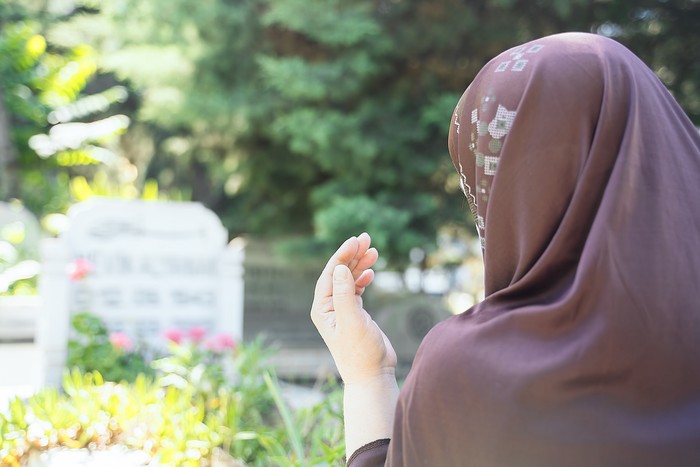The Virtue of Visiting Graves, Want to Know?

DDHK. ORG – Many people make pilgrimages to graves or burials Islam ahead of Ramadan. This activity has Hikmah, among other things, serves as a reminder, the world is only a passage to the final destination, namely the hereafter. For this reason, so that faith and piety to Allah SWT and His Messenger increase, every Muslim should visit graves.
"Visiting the grave has a very important meaning, namely so that people remember the afterlife, especially when most people now have a great relationship with the dun'ya (love of the world)," said KH Ahmad Zubaidi MA some time ago as reported by Republika.
Kiai Zubaidi explained, indeed at first, visiting the graves was prohibited because when the faith of the Muslims was not yet strong, it was feared that what happened would actually make the faith of the Muslims at that time deviate. However, after the faith of Muslims was assessed as strong by Rasulullah SAW, he allowed it through his words, "I once forbade you to visit the graves, now visit the graves." (Muslim HR)
Narrated in the history of At-Tirmidhi added, "Because actually visiting the graves makes you remember the hereafter." Quoting the opinion of KH Ali Maksum in Hujjah Ahlissunnah Wal Jama'ah, Kiai Zubaidi said that visiting graves is permissible for all Muslim schools of thought.
Because apparently there is a benefit behind it. In the history of Al-Hakim, the Prophet said, "Because visiting graves can soften the heart, shed tears, remind the land of the afterlife and don't say dirty words (in it)."
Visiting the graves, especially to the tombs of the Prophets and pious people, has a priority besides its influence on the spirituality of the pilgrims. Therefore, Rasulullah SAW often visited the Baqi cemetery (the burial complex of his companions in Medina).
“Viewing graves can soften even the hardest of hearts, give hearing to the most deaf ears, and give light to the faintest visions,” he explained.
Kiai Zubaidi explained that visiting graves causes people to look back at their way of life. Pilgrimage is also a warning for those who are still alive so that they evaluate themselves, think about the heavy responsibility before Allah SWT and humans, and against the lack of good deeds that have been done.
Regarding the best time for pilgrimage, Kiai Zubaidi conveyed that the time to visit graves can be done at any time. It's just that, there are narrations which explain that a good day for pilgrimage to parents' graves is on Friday. This was explained by Sheikh Sulaiman bin Umar bin Muhammad Al-Bujairimi in At-Tajrid li Naf'il 'Abid ala Syarhil Manhaj.
Quoting this opinion, Kiai Zubaidi said that the spirit of the deceased has a mooring at his grave and will never part forever. However, the spirit is more tightly tethered to the grave since Ashar falls on Thursday until dawn on Saturday. Because of this, many people make it a practice to visit graves on Fridays and Asr time on Thursdays.
"Meanwhile, the pilgrimage of the Prophet Muhammad to the martyrs during the Uhud War on Saturday was more due to the narrowness of Friday by various amaliyah fadhilah Fridays, while they (the graves of the martyrs) were far from the city of Medina," said Kiai Zubaidi citing the opinion of Sheikh Sulaiman Al-Bujairimi. [DDHK News]



